01Sep
Whānau Ora navigators to support rural Canterbury whānau
Whānau Ora Kaiārahi (navigators) recently established inside Rural Canterbury PHO were officially welcomed at a mihi whakatau earlier this month.
Kylie-Jane Phillips (Ngāi Tahu whanui, Te Ati Awa, Ngāti Kahungungu) and Jennie Apirana (Ngāi Tuhoe, Ngāti Porou, Te Whānau a Apanui, Ngāti Ruanui) are the newest members of the 50+ team of Whānau Ora navigators around Te Wai Pounamu.
Kylie-Jane, who was born and raised in a rural community, previously worked in suicide prevention coordination for a non-government organisation (NGO). She said: “This collaboration with general practice will help us connect with whānau in rural communities, as I know from my previous roles that this can be difficult. I’m really looking forward to working with whānau and finding out what is important to them.”
Jennie worked for several years with Canterbury DHB’s Māori team at the Diabetes Centre. She said: “This is the appropriate service for our families, especially when we’re creating a focus on being Māori, and approaching outcomes in an interconnected way.”
Whānau ora is a national whānau-centred initiative that brings opportunities to empower whānau as a whole, rather than focusing separately on individual whānau members. Navigators work with whānau in reaching toward seven pou or outcomes:
- Becoming self-managing;
- Living healthy lifestyles;
- Participating fully in society;
- Confidently participating in Te Ao Māori
- Economically secure and successfully involved in wealth creation;
- Cohesive, resilient and nurturing; and
- Responsible stewards to their living and natural environment.
Wellness for Māori historically included these pou and whānau ora therefore is intent on helping whānau restore these capabilities in the lives of their and other whanau.
Moana-o-Hinerangi, Māori Health Manager for Rural Canterbury PHO says that “whānau ora is not a new thing – but restoring it in this 21st century is a powerful vehicle for whānau to aspire to reaching their own determined levels of wellness … and is the newer challenge about it.”
“That Kaiārahi are being employed in-house with a Primary Health Organisation – a mainstream organisation – is a new thing too, so testing this out is important. As far as we understand it’s not happened since Te Pūtahitanga began operating in 2014 as the Whānau Ora Commissioning Agency.
“We have a population of approximately 5,000 Māori whānau members who are registered with RCPHO’s general practices. The Te Pūtahitanga mission is to invest in and support thriving whānau and direct investment in rural whanau was an area that Te Pūtahitanga was drawn to.
The pilot aim is two-fold: to bring Whānau Ora to individual whānau, and to support whānau to socialise and cross-fertilise Whānau Ora in rural communities.
Rural Canterbury PHO CEO, Bill Eschenbach, says that “rural general practices play an important role in ensuring that whānau are identified and targeted and the link between them and navigators is established so initially Kaiārahi will work with registered patients, but the long-term goal is for communities of rural whānau to take up Whānau Ora.”
“The challenge for RCPHO would be how best to ensure that the Whānau Ora kaupapa remained whānau led and that the resource was directed toward whanau achieving their wellness aspirations. This two-year pilot is to trial this and see what can be learnt from it” says Moana-o-Hinerangi.
Moana-o-Hinerangi believes that “our two navigators are complementary in many ways because of iwi affiliations, professional backgrounds, age and life experience mixes, personal attributes and responses noticed from different whānau age groups.”
“With whānau approval, we look forward to usefully walking the whānau ora journey with them.”
About the Author
Related
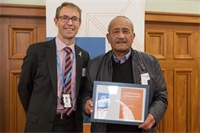
One of our health system’s ‘instrumental and inspiring’ volunteers has been recognised for his wo...
Read More >
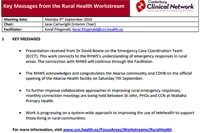
Canterbury Community Pharmacy Group (CCPG) has released a report, written by Brendon McIntosh, which...
Read More >
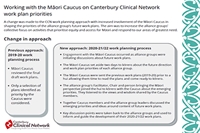
The ‘Equity in Focus’ segment is dedicated to sharing the mahi taking place across the health syst...
Read More >
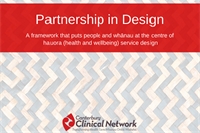
A flexible, principles-based framework called partnership in design, which puts people and whānau a...
Read More >
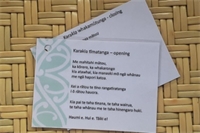
Starting and ending a hui (meeting) on the right note is key to ensuring participants feel welcome a...
Read More >
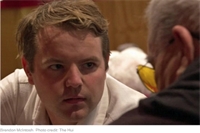
Canterbury Community Pharmacy Group (CCPG) has released a report, written by Brendon McIntosh, which...
Read More >